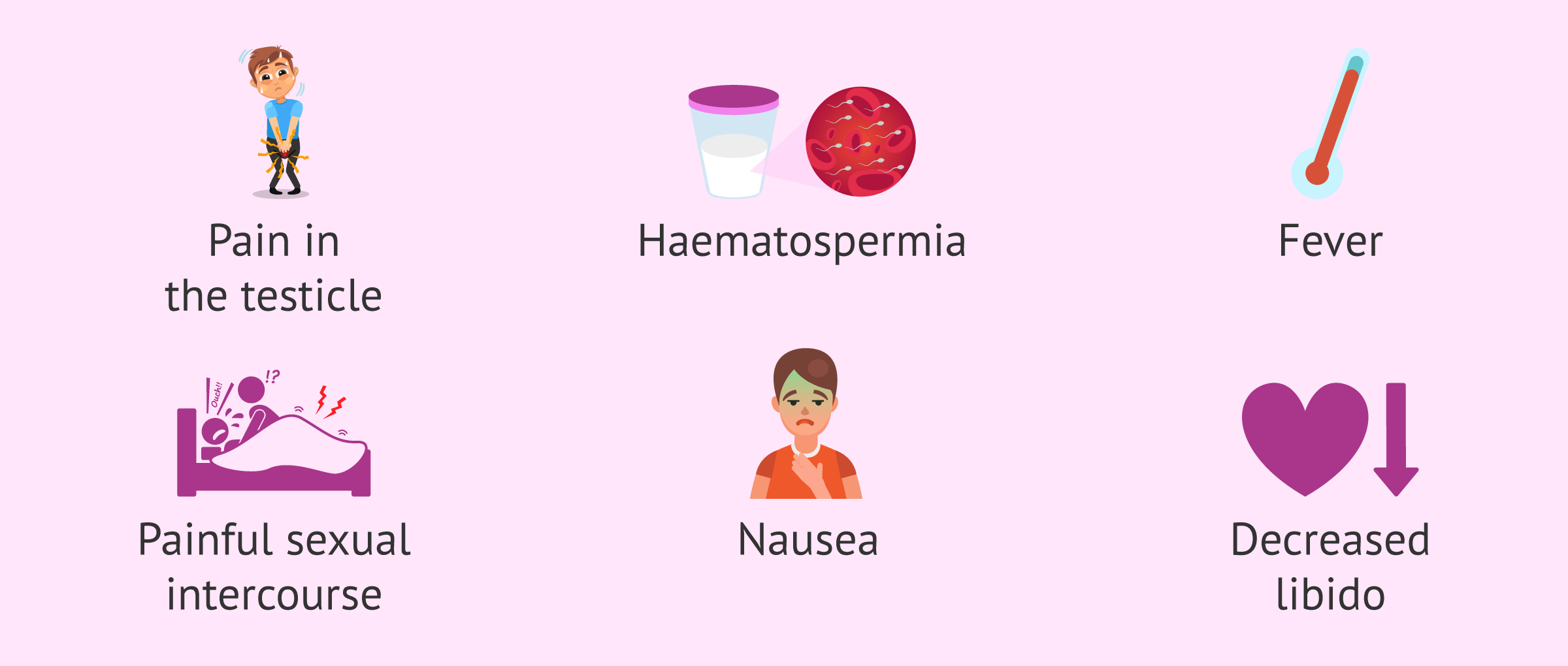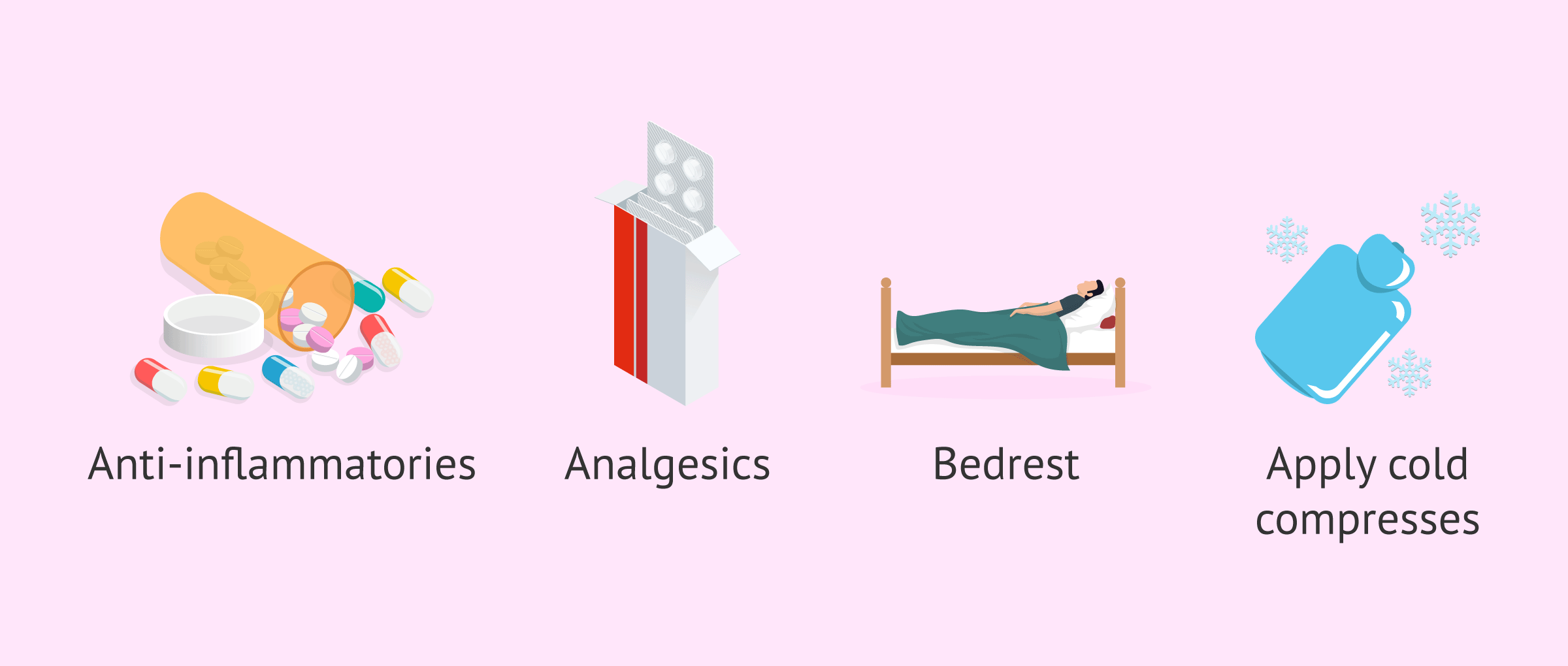Orchitis is the inflammation of the testicle accompanied with intense pain which is caused by a general traumatism or infection at the epididymis level or at the testicle itself.
Orchitis can be unilateral when only one testicle is affected or bilateral when both of them are inflamed. In the most severe cases, orchitis can become chronic when left untreated.
Men with orchitis may suffer from sterility apart from other symptoms and could even develop azoospermia. For this reason, it is important to apply the most appropriate treatment as soon as possible.
Provided below is an index with the 9 points we are going to expand on in this article.
- 1.
- 1.1.
- 2.
- 3.
- 4.
- 5.
- 6.
- 6.1.
- 6.2.
- 6.3.
- 6.4.
- 7.
- 8.
- 9.
What are the causes of testicular swelling?
The main cause of orchitis is an infection caused by microorganism. Depending on the causing agent, one can distinguish between bacterial orchitis and viral orchitis with the last one being the most frequent.
In the following section, we will list all possible causes that can lead to inflamed testicles:
- Mumps virus
- May occur in children after puberty and develop in what it’s popularily known as parotid orchitis.
- Sexually Transmitted Infections
- The most common ones are bacteria that cause gonorrhea, syphilis or chlamydia.
- Urine infection
- Can extend through the urinary tract to the testicle. The most common bacteria in this case is E. Coli.
- Infections in the prostate or epididymis
- can extend to the testicle. In the latter case, the disorder is known as orchiepididymitis.
Other possible reasons that can cause inflammation of the testicles is the insertion of catheters or medical instruments through the penis, as well as having suffered from tuberculosis or brucellosis.
Risk Factors
Men between the ages of 19 and 35 are more likely to suffer from sexually transmitted orchitis. In this case, the risk factors are as follows:
- Having frequent sexual relations with different partners.
- Having a previous history of sexually transmitted disease (STD) such as gonorrhea.
- Having a partner with a diagnosed STD.
- Not using a condom.
When orchitis has causes other than sexual transmission, these are the risk factors:
- Being over 45 years of age.
- Not being vaccinated against mumps.
- Having regular urinary tract infections.
- Having performed surgery on the urinary tract.
- Being born with urinary tract abnormalities.
- prolonged use of a Foley catheter (drainage and collection of urine from the bladder).
Therefore, the most appropriate actions to prevent the risk of orchitis are mumps vaccination and safe sex.
Symptoms of orchitis
The symptoms of orchitis usually appear suddenly and can vary from mild to severe depending on the condition of each patient.
We will now comment on the most common clinical manifestations, although it is not always necessary that they all occur:
- Pain in the testicle
- Swelling in the scrotum
- Blood in ejaculated semen (hematospermia)
- Fever
- Groin pain
- Painful urination
- Pain during sex
- Abnormal discharge from the penis
- Tender, swollen, heavy feeling testicle
- Nausea
- Decreased libido
The acute phase of orchitis corresponds to an increase of up to 5 times the size of the testicle, accompanied by a rise in temperature and a lot of pain.
However, in the chronic phase, when the pain persists for more than 6 weeks, the testicle stops being inflamed, sticks to the scrotum, becomes fibrous and hardens. This is what is known as testicular atrophy.
How is orchitis diagnosed?
Orchitis is detected when the man has a lot of pain and discomfort in the testicle. In that case, it is advisable to go to the doctor immediately.
The diagnosis is made by palpation of the testicle where the presence of pain, redness, increased volume, scrotal asymmetry, as well as the other symptoms we have already mentioned, will be detected.
As a complementary test, it is advisable to perform a urine and a semen analysis to detect the presence of leukocytes in the ejaculate and identify if there is any pathogenic organism.
A testicular ultrasound may also be performed to rule out other causes of pain, such as pain from testicular torsion.
This is especially important in the case of children since testicular torsion needs surgery and its treatment is more urgent.
On the other hand, painless inflammation of the testicle may be a sign of testicular cancer, and therefore more diagnostic tests will be needed.
Orchitis and Infertility
Orchitis can have complications that end up leading to male sterility, which will be more or less severe depending on whether it affects one or both testicles.
Testicular inflammation causes the temperature of the testicle to rise, which negatively affects the process of spermatogenesis (sperm production).
The testicles are located in the scrotal pouch at a lower temperature than the rest of the body, about 34ºC, to allow the correct formation of sperm.
Another cause of infertility is caused by atrophy of the seminiferous ducts. This results in a blockage that decreases the concentration of sperm in the ejaculate, an alteration known as oligozoospermia.
In the most severe cases of ischemic orchitis with testicular atrophy of both testicles, the male will have a total absence of sperm (azoospermia), as well as a deficit of the hormone testosterone.
Finally, necrosis of the testicular tissue may require complete removal of the testicle (orchiectomy).
Is there a treatment for orchitis?
In most cases, orchitis disappears completely over time and is not associated with any serious illness, although there may be some after-effects that affect fertility as we have already mentioned.
In general, orchitis of bacterial origin has a better prognosis than viral orchitis. Treatment consists of taking antibiotics to eliminate the causative agent, while in mumps orchitis the only goal of therapy is to relieve the symptoms.
Some of the recommendations that the patient should follow are the following:
- Taking anti-inflammatory drugs
- Taking painkillers for pain
- Rest in bed with elevated scrotum with a towel
- Apply cold compresses to the scrotum area
It should be noted that in orchitis caused by an STD such as gonorrhea or chlamydia, antibiotic treatment should also be administered to the affected partner.
On the other hand, parotid orchitis cannot be treated and can, therefore, lead to more serious consequences such as testicular atrophy.
Patients who have suffered from orchitis with a sterile outcome will have to resort to assisted reproduction treatment if they wish to become parents, including sperm donation in the most serious cases.
Did you know that we can help you to choose a fertility clinic for your IUI cycle? All you have to do is get your Fertility Report now. It is an easy-to-use tool that is capable of filtering the best clinics and tailor an individual report exclusively for you with useful tips that will help you make a well informed decision.
FAQs from users
Can orchitis cause fertility problems?
The definition of orchitis is that of an inflammatory process affecting one or both male gonads (testicles). The causes of orchitis can be of infectious origin, traumatic or even due to the twisting of the spermatic cord. All these causes can produce a process of subfertility (diminished fertility) or infertility.
The most obvious cause of orchitis that causes infertility is mumps (caused by infection with a virus called Paramyxovirus) when it occurs in adulthood or after age 18.
When faced with a process of testicular inflammation of one or both testicles, the first treatment to be able to reverse the situation and preserve the maximum fertile capacity is to go to the doctor urgently. It should not exceed a time of 4 hours, since this will allow to establish an immediate treatment and thus preserve, in most cases, the fertile capacity of the patient.
Is orchitis contagious?
Basically, no. However, the agents that cause bacterial or viral orchitis can be transmitted and it is therefore necessary to take the necessary preventive measures.
In the case of sexually transmitted diseases, it is very important to use a condom until a complete cure is achieved, as well as to carry out a treatment with antibiotics in both members of the couple.
It is also very important to vaccinate against the mumps virus in childhood.
Are there natural remedies for orchitis?
In the case of bacterial orchitis, it is necessary to take drugs with antibiotics in order for it to be cured. However, if the cause of the orchitis is other, the male will have to rest and apply cold compresses with ice to lower the inflammation. It is also advisable to place a towel under the scrotum to keep it elevated when lying down.
Can phimosis surgery lead to orchitis?
Phimosis surgery, also called circumcision, consists of cutting and removing a part of the skin of the penis. In case of complications during surgery or recovery, involving inflammation of the penis or risk of infection, it could indeed lead to testicular orchitis. However, this does not usually happen.
Suggested for you
Azoospermia is a cause of infertility characterized by not finding sperm in the ejaculate. If you want to read more about this, you can enter the following post: What is azoospermia?
We have mentioned the semen analysis as a diagnostic test for orchitis. To know what it is in detail, we recommend you read the following article: How is a semen analysis report performed?
The presence of pyocytes on the seminogram will confirm that there is an infection in the male reproductive tract. For more information on this, you can read on here: Leukospermia and treatment.
We make a great effort to provide you with the highest quality information.
🙏 Please share this article if you liked it. 💜💜 You help us continue!
References
Abdullah Alarbid, Shady Mohamed Salem, Turky Alenezi, Abdullah Alenezzi, Khaled Alali, Feras Ajrawi, Faisal Alhajry. Early predictors of Brucella epididymo-orchitis. Urol Ann. 2023 Apr-Jun;15(2):158-161. doi: 10.4103/ua.ua_178_21. Epub 2023 Jan 16 (View)
Han Wu, Fei Wang, Dongdong Tang, Daishu Han. Mumps Orchitis: Clinical Aspects and Mechanisms. Front Immunol. 2021 Mar 18:12:582946. doi: 10.3389/fimmu.2021.582946 (View)
Thomas H Trojian, Timothy S Lishnak, Diana Heiman. Epididymitis and orchitis: an overview. Am Fam Physician. 2009 Apr 1;79(7):583-7(View)
FAQs from users: 'Can orchitis cause fertility problems?', 'Is orchitis contagious?', 'Are there natural remedies for orchitis?' and 'Can phimosis surgery lead to orchitis?'.
Authors and contributors








